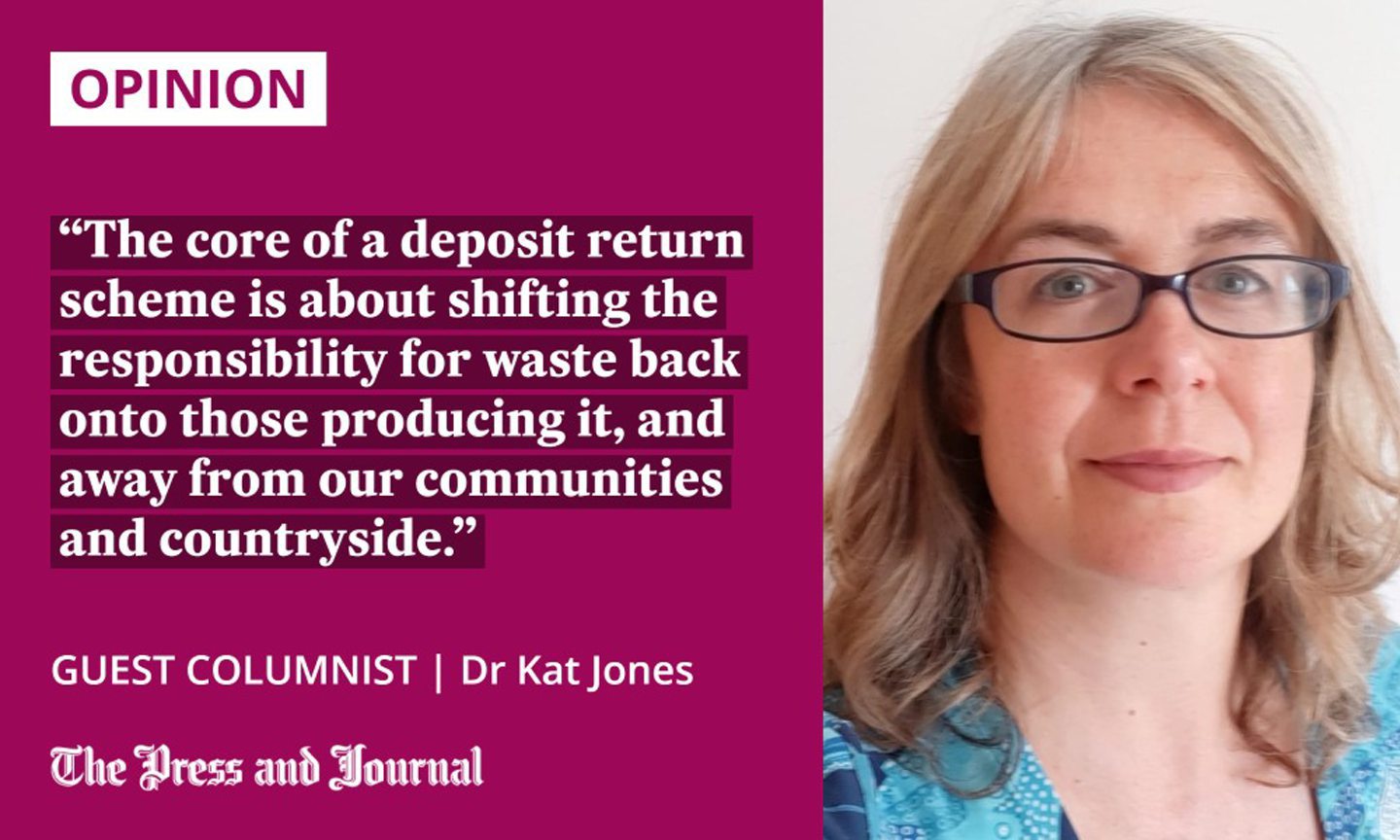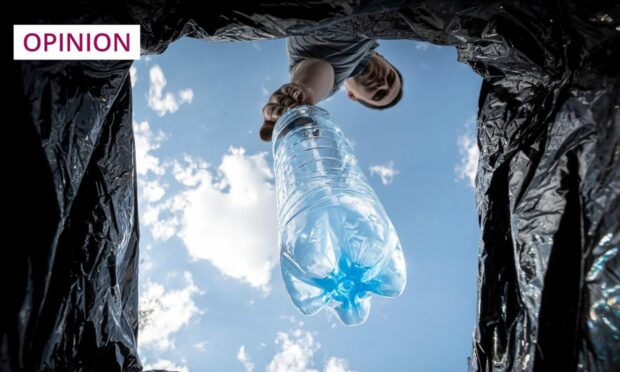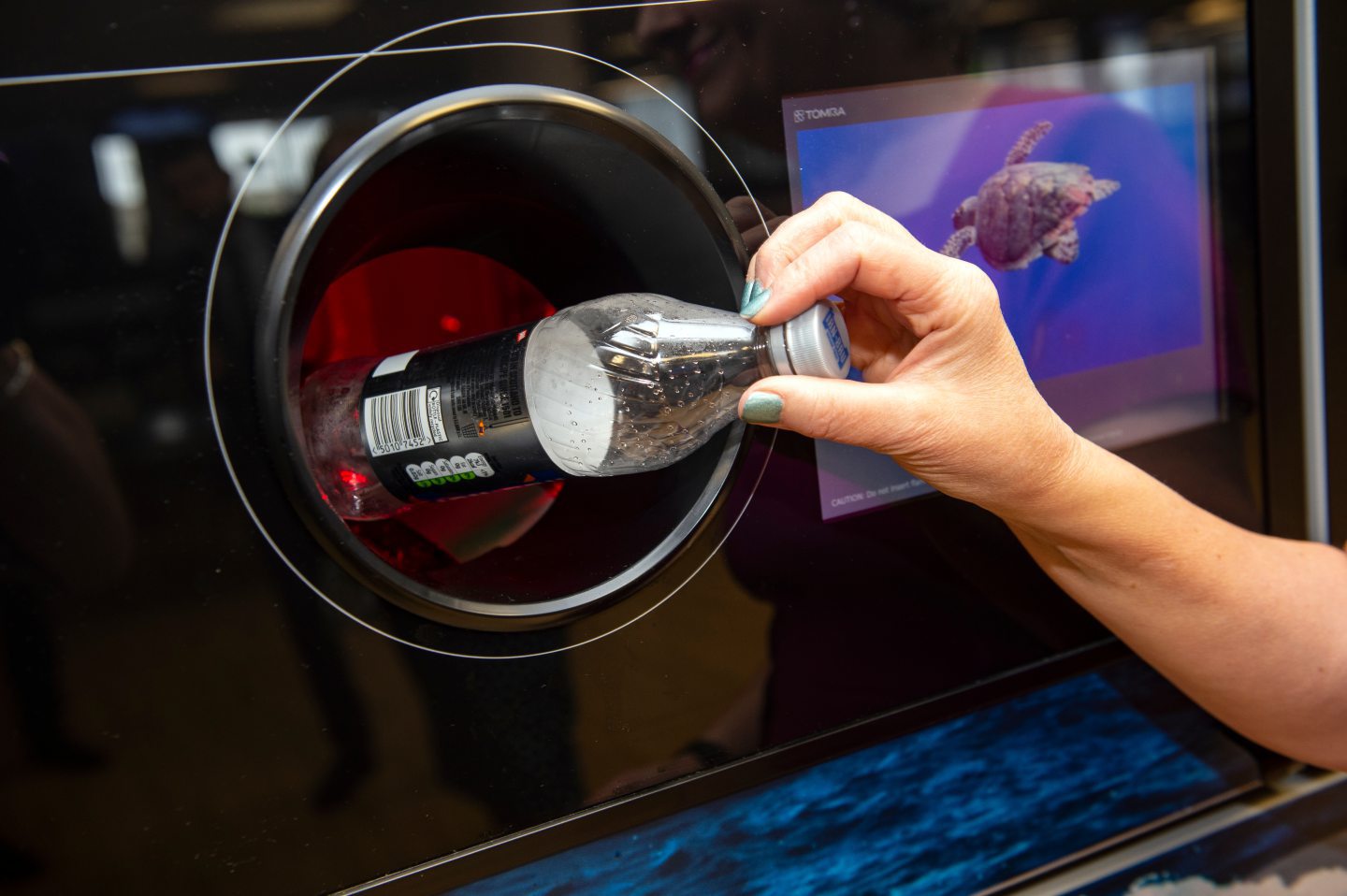The time has come for society and the environment to stop picking up the bill (and the litter) for big business, writes Dr Kat Jones of the Association for the Protection of Rural Scotland.
In August this year, one of the simplest ways to reduce waste comes to Scotland – deposit return on drinks cans and bottles.
It will also boost our recycling rates, which are currently in the doldrums, it’ll save money for hard-pressed local councils, and be a small step towards a more circular economy.
Drinks containers are just one part of the current wasteful linear economic model, and much more difficult changes will be required if we are to switch fully away from waste, litter, landfill and incineration. But this scheme will be transformative.
It’s also entirely commonplace. More than half a billion people use deposit systems around the world daily. Soon, the Scottish economy will also get the benefit of single-stream recycling for aluminium and plastic – better quality, better quantity, and almost no contamination.

Yet, for some reason, big business in Scotland, in the form of the Scottish Retail Consortium, continues to resist these plans. Every day, there seems to be a new story about the forthcoming apocalypse: a system their products are already part of in Germany, the Netherlands, Croatia, the Baltics, Scandinavia, and many other places.
The core of a deposit return scheme is about shifting the responsibility for waste back onto those producing it, and away from our communities and countryside, still blighted by litter. This is the “polluter pays” principle, and is a key basis for effective environmental and economic policy.
If your priority is shareholder value, it is to your benefit for someone else to deal with the shortfalls of your wasteful business model. Of course you are going to try to delay or undermine it.
Companies say they’ve not had enough time to get ready, but the big supermarkets have known this was coming since the first minister announced it in September 2017. Theresa May had been prime minister for barely a year. It seems like a lifetime ago.
Big business have more to do
Those huge retailers – alongside the big drinks companies – are the key players behind Circularity Scotland, the body the industry set up to meet their responsibilities to deliver the deposit return scheme. How it will work, from collection to labelling and fees, are all down to how well (or not) that company runs the system.
There are problems with implementation (not least that it’s currently more expensive for producers than any other European system), but they are the consequences of decisions made by this company and its big corporate members, not Scottish Government ministers.
Small drinks producers, especially brewers, are right to complain about the costs, the flaws with labelling, and about a system which suits big corporates, not them. Pressure on the high upfront costs they’ve been facing is working, and the per-item fees have been a little reduced.
There’s still more for the industry to do to make it work for smaller companies, though, and we support those efforts.
Parliament’s rules aren’t the problem
The system has already been delayed twice in response to calls from big business. Each time, they claim they’ll be ready if it’s postponed by a year.
Their arguments are the same ones they made three years ago, when they first sought to delay and weaken the system. This time, they are attempting to make their own foot-dragging look like it’s the fault of politicians.
But MSPs and small businesses now really need to pile the pressure onto Circularity Scotland to get the deposit return scheme right. The rules put in place by parliament aren’t the problem, and no amount of finger-pointing at ministers will fix the implementation.
They might not want to carry the can for their own waste, but the time has come for society and the environment to stop picking up the bill – and the litter
Deposit return schemes work efficiently and well elsewhere, and almost entirely eliminate littered drinks cans and bottles. It is the producers and retailers who are responsible for making it work.
They might not want to carry the can for their own waste, but the time has come for society and the environment to stop picking up the bill – and the litter.
No more delays. No more shirking responsibility. Time to clean up Scotland’s towns and countryside.
Dr Kat Jones is director of the Association for the Protection of Rural Scotland


Conversation